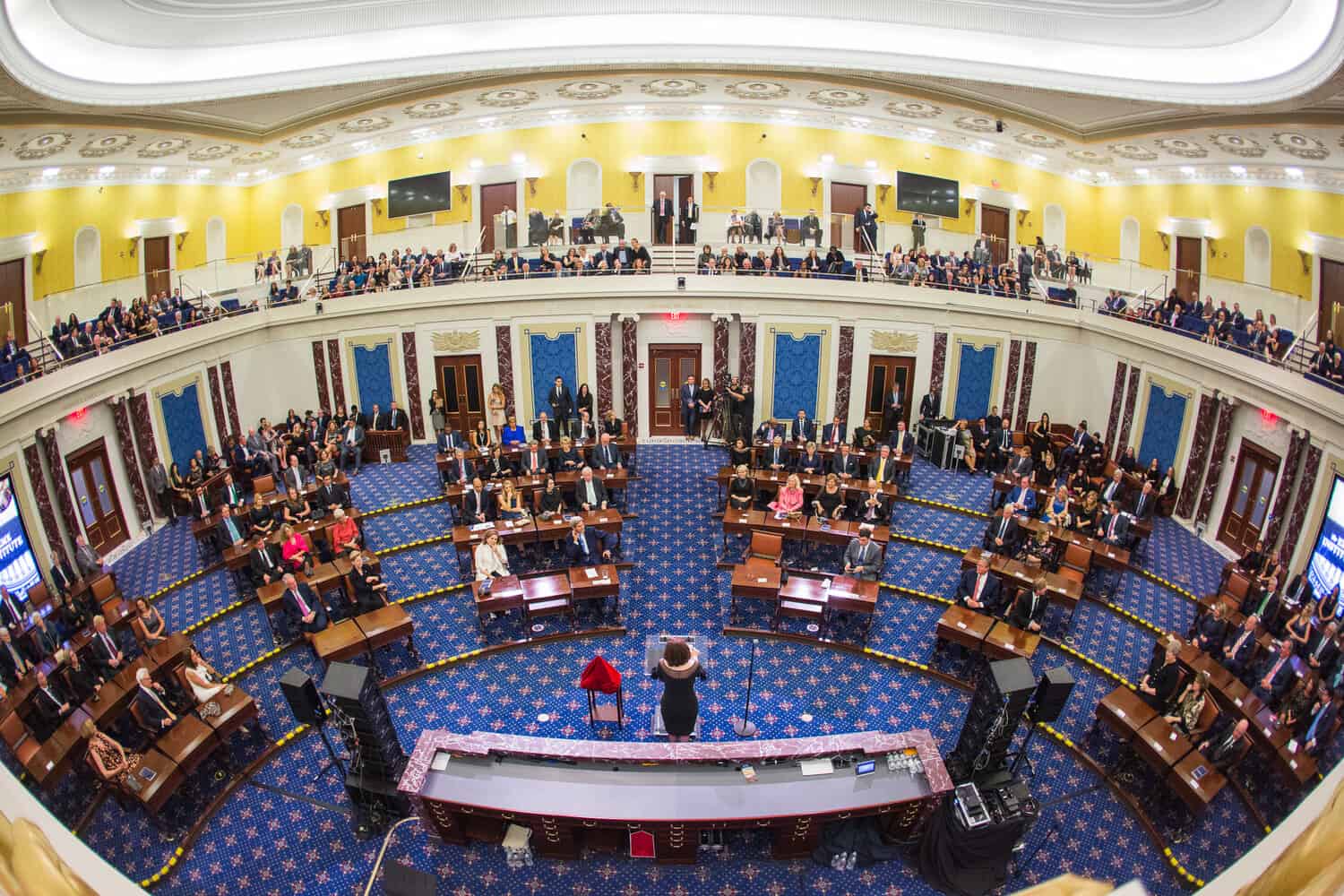
Michelle Berger is a student at Harvard Law School.
In today’s News and Commentary: President Biden will re-nominate Julie Su in 2024, Wells Fargo employees unionize, and the NLRB General Counsel fails to show that wearing BLM apparel is protected concerted activity.
President Biden will re-nominate acting Labor Secretary Julie Su in the new year, as the Senate sent back hers and dozens of other nominations that they failed to pass this calendar year. As I reported in April, the Senate HELP committee advanced acting Secretary Su’s nomination to the full chamber, but there, moderate democrats such as Senators Joe Manchin and Kyrsten Sinema have withheld their support. Su previously served as the California Secretary of Labor and as Deputy Secretary to former Secretary of Labor Marty Walsh, who departed the Biden administration in March. Su has a distinguished record as an advocate for workers’ rights and would be the first Asian American member of Biden’s cabinet at the secretary level, if confirmed in 2024.
Yesterday, workers at a Wells Fargo bank branch in Albuquerque, New Mexico, voted 5-3 to form a union. Theirs is the first employee union at a major US bank. The union is affiliated with the Communication Workers of America. Workers at another location –– in Bethel, Alaska –– are voting in a representation election today.
Also yesterday, an NLRB Administrative Law Judge rejected the General Counsel’s argument that the NLRA protected Whole Foods workers who wore apparel referencing the slogan ‘Black Lives Matter’ in 2020. The ALJ reasoned that the workers were not engaged in protected concerted activity within the meaning of section 7 of the Act. A key section of the decision rejects the General Counsel’s attempt to show a nexus between ‘Black Lives Matter’ messaging and the terms and conditions of employees’ employment or their “lot as employees.”






Daily News & Commentary
Start your day with our roundup of the latest labor developments. See all
July 15
The Department of Labor announces new guidance around Occupational Safety and Health Administration penalty and debt collection procedures; a Cornell University graduate student challenges graduate student employee-status under the National Labor Relations Act; the Supreme Court clears the way for the Trump administration to move forward with a significant staff reduction at the Department of Education.
July 14
More circuits weigh in on two-step certification; Uber challengers Seattle deactivation ordinance.
July 13
APWU and USPS ratify a new contract, ICE barred from racial profiling in Los Angeles, and the fight continues over the dismantling of NIOSH
July 11
Regional director orders election without Board quorum; 9th Circuit pauses injunction on Executive Order; Driverless car legislation in Massachusetts
July 10
Wisconsin Supreme Court holds UW Health nurses are not covered by Wisconsin’s Labor Peace Act; a district judge denies the request to stay an injunction pending appeal; the NFLPA appeals an arbitration decision.
July 9
the Supreme Court allows Trump to proceed with mass firings; Secretary of Agriculture suggests Medicaid recipients replace deported migrant farmworkers; DHS ends TPS for Nicaragua and Honduras